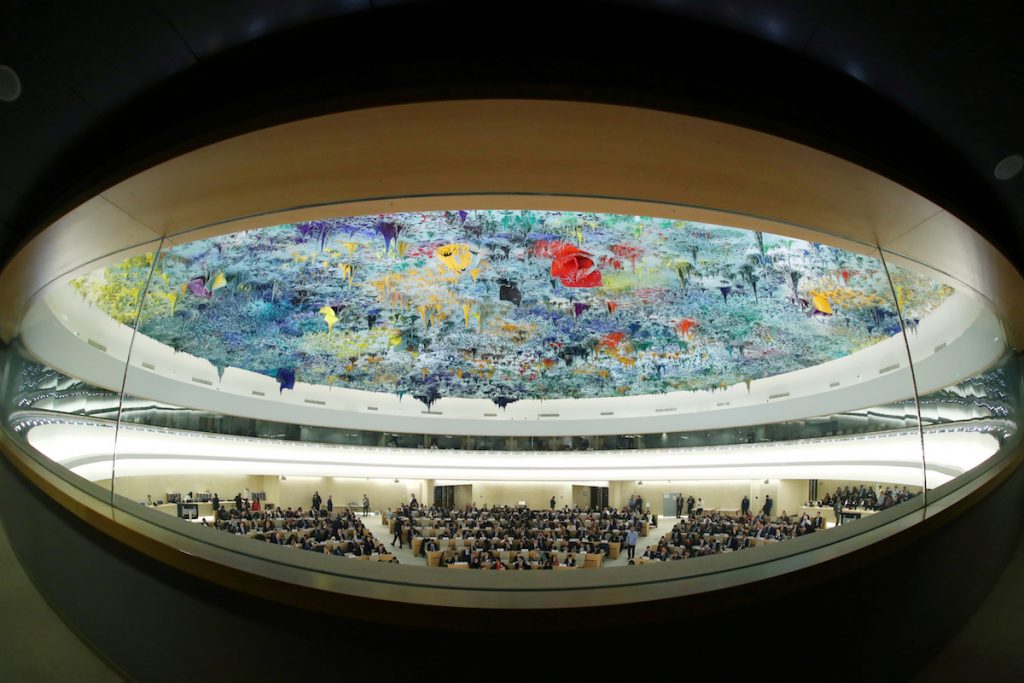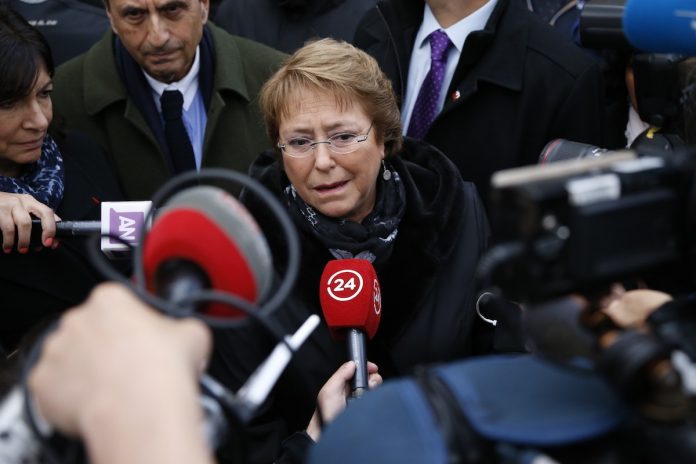The United Nations High Commissioner on Human Rights has raised alarm over the rising human rights abuses in many Asian countries.
At the opening of the 45th Human Rights Council session, High Commissioner Michele Bachelet said on Sept. 14 there is an “alarming number” of people who are intimidated, attacked, and killed in the region.
In her Global Human Rights Update, Bachelet mentioned at least 12 Asian countries out of the more than 25 countries across the world that have “escalating suffering and turmoil.”
In the Philippines, Bachelet said she is concerned “by continued reports of drug-related killings, by both police and vigilantes.”
“There is clearly an urgent need to revoke the policies that continue to result in killings and other human rights violations, to bring to justice the perpetrators, and to halt the use of rhetoric inciting violence against people who use or sell drugs,” she said.
She also hit the alleged “harassment, threats, and violence against journalists, activists, and critics” and the Philippine government’s plan to reinstate the death penalty.
In China, Bachelet said her office has been discussing with authorities in Beijing about a possible visit to China’s Xinjiang region where more than a million Muslim Uyghurs and other minorities are reportedly detained.
“I am concerned about the Uyghurs,” she said.
“My office continues to engage with the Chinese government on the situation in the Xinjiang Uyghur Autonomous Region and the impact on the human rights of its policies,” said Bachelet.
She said she also discussed with China the impacts of the implementation of the new security law in Hong Kong.
She said Hong Kong authorities “have consistently stated” that the new law will not have a negative impact on the peaceful exercise of human rights.
She encouraged authorities “to monitor closely the enforcement of the law” and “take steps to review the law in response to any negative consequences it might have on the enjoyment of human rights.”

Bachelet also urged the international community to look into the situation in Syria where “people continue to face multiple and comprehensive crises.”
She said some 9.3 million people in Syria face food insecurity while the government imposed some strict sanctions that hinder humanitarian aid to reach the country’s poor communities.
She called the attention of both India and Pakistan over the situation in Kashmir, urging both countries to “uphold the rights of the Kashmiri people — which is the best way to prevent further tensions and conflict.”
Bachelet has called on the Human Rights Council “to give renewed attention to Sri Lanka,” in view of the need to prevent threats to peace, reconciliation, and sustainable development.
“I am troubled that the new government is swiftly reneging on its commitments to the Human Rights Council since it withdrew its support for resolution 30/1,” she said.
Bachelet urged the Council’s member-states to help “de-escalate grievances, deliver appropriate protection, establish a sound foundation for development and security, and ensure justice, freedom, and rights.”
“Humanity has faced many crises. I am convinced that together, we can weather the current challenges — and that our societies can emerge better able to prevent injustice,” she added.
Bachelet stressed a “particular concern” over the “escalating tragedy in Gaza,” where two million people “desperately need long-term and sustainable solutions.”
For 13 years, Israel has been imposing sea and land blockade that lead to a complete halt of Gaza’s economic and commercial activities.
Bachelet said the fuel ban in Gaza has created “deeper suffering and humanitarian burdens.”
In Iran and Iraq, the human rights expert reported cases of violations against human rights defenders, including women, lawyers, and labor rights activities.
She appealed to the Iranian government to reconsider the temporary release of political prisoners who have been excluded from a program in response to the COVID-19 pandemic.
“I urge the authorities to pursue many more temporary releases, as an urgent public health measure, and to immediately release political prisoners and prisoners of conscience,” she said.
The ongoing killings and attacks on activists in Iraq “are deeply worrying,” said Bachelet.
She noted the “high number” of rights activists and protestors who remain missing and cases of torture and ill-treatment.
“I encourage the government to move quickly on its stated commitment to establishing a fact-finding commission to ensure accountability and prevent such actions in the future,” she said.









